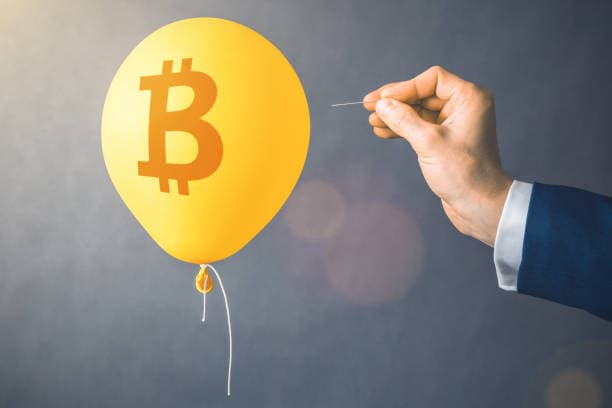Who controls Bitcoin and who invented it?
As the world's most famous cryptocurrency, Bitcoin has been attracting the attention of countless investors, technologists and ordinary users. Whether it's the background of its invention or who controls the development of Bitcoin, these questions have been the focus of much debate. Today, we're going to take a closer look at these questions and walk you through the story of Bitcoin's birth and how it works today. Through this article, you will not only be able to understand the basic concepts of Bitcoin, but also have a clearer understanding of the control and development direction behind it.

The Birth of Bitcoin: Who Invented Bitcoin?
Bitcoin was invented in 2008 by a person or organization known as Satoshi Nakamoto. Satoshi Nakamoto proposed a decentralized digital currency system in a white paper published that year, and successfully mined the first Bitcoin block, the "Genesis Block," in 2009. This innovation made Bitcoin the world's first cryptocurrency to use blockchain technology. Although Satoshi Nakamoto's true identity remains uncertain, his creation undoubtedly ushered in a whole new era of digital currency.
Behind the invention of Bitcoin is actually a challenge to the existing financial system. Satoshi Nakamoto designed Bitcoin as a response to the problems of the traditional financial system, particularly the decline in trust in banks and the monetary policies under their control after the global financial crisis of 2008. The decentralized nature of Bitcoin means that no single institution or government can intervene or manipulate its operation, which is one of the biggest differences between Bitcoin and traditional currencies.
Bitcoin decentralization: who controls Bitcoin?
When it comes to who controls Bitcoin, the key word is "decentralized". Bitcoin is not controlled by a government or central bank like traditional currencies, it is maintained by users and miners around the world. In other words, no one or no organization has complete control over the operation of Bitcoin, making it uniquely suited to protect user privacy and transaction transparency.
The decentralized operation of Bitcoin relies on blockchain technology. The blockchain is a public distributed ledger where every bitcoin transaction is recorded and all transactions are verified by miners around the world. Miners use their computing power to solve complex mathematical problems and add new blocks to the blockchain. This mechanism ensures the transparency and security of the Bitcoin system, and anyone can participate in the operation of Bitcoin without relying on traditional financial institutions.
Although the operation of Bitcoin is maintained by miners around the world, not all miners have the same level of control. Due to the difficulty of mining Bitcoin and the intense competition, a few large mining pools (e.g. F2Pool, Antpool, etc.) have a relatively large amount of influence. These pools do not directly control the development or policy of Bitcoin; they are more concerned with ensuring the stability and security of the network's operation.

The Development of Bitcoin: Open Source and Community Governance
The development and upgrading of Bitcoin is driven by a global community of developers. The core code of Bitcoin is open source and anyone can contribute to it or suggest improvements. Bitcoin's development is not led by a centralized management team, as in a traditional business, but rather by the consensus of the community. When a proposal is agreed upon within the community, it is incorporated into the next version of the software.
The development of Bitcoin has been marked by several major disagreements, most notably the split between Bitcoin and Bitcoin Cash.In 2017, due to disagreements over the size of the Bitcoin block, some developers and miners opted to split to create a new currency, Bitcoin Cash.The new currency, which is now known as Bitcoin Cash, was created by a group of developers and miners, and is now known as Bitcoin Cash.The new currency, Bitcoin Cash, was created by a group of developers and miners. Bitcoin Cash. This event revealed differing views within the Bitcoin community on technological upgrades and monetary policy, but it also emphasized the nature of Bitcoin's reliance on community consensus for its development.
Bitcoin's Distribution of Control: How to Maintain Bitcoin's Decentralized Nature?
Just because Bitcoin operates in a decentralized manner does not mean that it is completely free of risks or challenges. As the value of Bitcoin continues to rise, more capital has been invested and specialized mining pools have emerged, which has led to a gradual centralization of control over Bitcoin. Bitcoin's "51% attack" is one of the biggest potential risks. When a single mining pool or group controls more than 50% of arithmetic power, it has the ability to launch an attack to tamper with transactions or double payments.
To prevent such risks, the Bitcoin community has continued to strengthen the security of the network. In addition to encryption technology and decentralized design, Bitcoin has increased the number of nodes and improved the consensus mechanism to further decentralize control. Bitcoin is also facing the challenge of technological upgrades, and how to improve transaction efficiency and scalability while safeguarding decentralization is a key issue for the future development of Bitcoin.
The Future of Bitcoin: Is Decentralization Sustainable?
As Bitcoin's applications and market demand continue to expand, can it remain decentralized? This remains to be seen. In the future, if the value of Bitcoin continues to rise, more capital forces may enter the market, which may affect the degree of decentralization. In any case, decentralization remains one of Bitcoin's core values, and the freedom, transparency, and autonomy it represents will continue to attract people from all over the world.
Frequently Asked Questions Q&A
Q1: Why hasn't Satoshi Nakamoto, the founder of Bitcoin, shown up yet?
A1: Satoshi Nakamoto has chosen to remain anonymous, which is also in line with the core concept of Bitcoin decentralization. Regardless of his real identity, the value and operation of Bitcoin is still maintained by users and miners around the world.
Q2: Will control of Bitcoin be centralized as mining pools become stronger?
A2: Theoretically, as the size of the mining pool increases, control may become more centralized, but the Bitcoin community continues to strengthen the security and decentralized design of the network to ensure that power is not overly concentrated.
Q3: Can Bitcoin maintain its decentralized mode of operation permanently?
A3: Although Bitcoin was designed with decentralization in mind, the sustainability of this model still needs time to be proven as the market develops and technology challenges.














